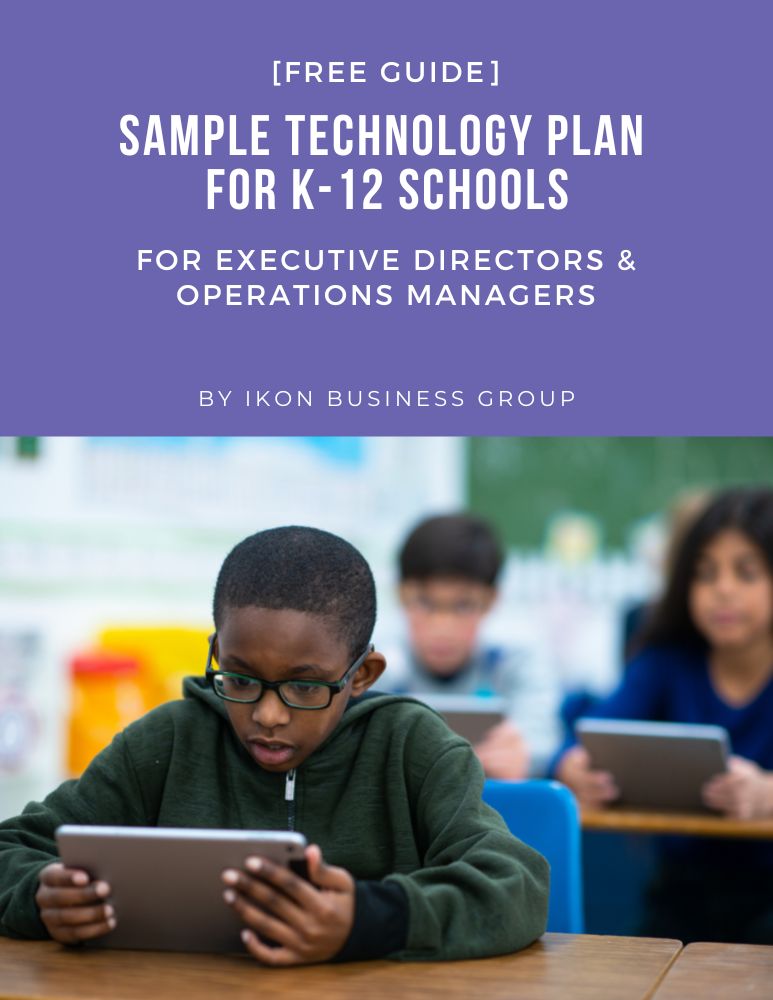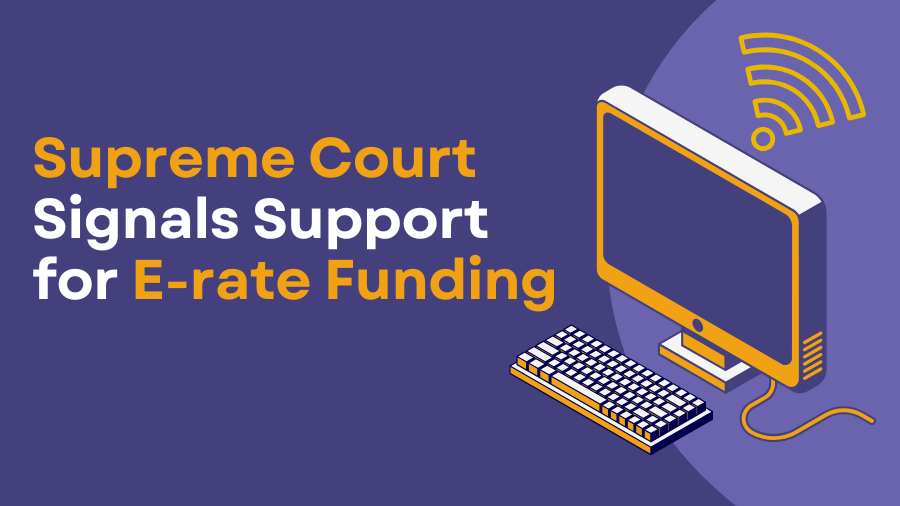The United States Supreme Court recently heard arguments in a case that challenges the funding structure of the Universal Service Fund (USF)—the program that fuels the $4 billion E-rate initiative for public and private schools’ internet access. While some conservative justices expressed concerns tied to the legal doctrine known as the nondelegation doctrine, the overall sentiment suggests it is unlikely the Court will overturn the E-rate program. Below is a concise overview of the case, its key takeaways, and what it all means for educational institutions.
What Is the E-rate Program?
The E-rate program, part of the broader USF, provides discounted telecommunications and internet services to schools and libraries across the country, including remote and low-income regions. It was established under the Telecommunications Act of 1996 and is overseen by the Federal Communications Commission (FCC). Since its launch:
-
$4 billion in annual funding supports affordable internet access for schools and libraries.
-
E-rate expansions have supported Wi-Fi hotspots in school buses and connectivity solutions for distance learning programs.
The Legal Challenge: Nondelegation Doctrine
The Consumers’ Research advocacy group claims that Congress unconstitutionally delegated its authority to the FCC, which then further “subdelegated” administration to a private entity, the Universal Service Administrative Co. (USAC). Essentially, the challengers argue:
-
Unconstitutional Tax: The USF is effectively a “tax” imposed by an agency rather than Congress.
-
Rubber-Stamping: USAC’s quarterly recommendations to the FCC determine how much telecom providers contribute, and those costs are passed on to consumers.
-
Lack of Congressional Cap: Setting no specific dollar limit on the USF opens the door to unchecked expansions.
This dispute taps into the nondelegation doctrine, which holds that Congress cannot transfer significant legislative power to agencies without clear and specific guidelines.
Key Justices Weigh In
During nearly three hours of arguments in FCC v. Consumers’ Research, several justices revealed where they stand:
-
Justice Samuel A. Alito Jr.: Expressed worry about fraud in universal service programs but was also concerned about the unintended consequences of striking down the entire funding structure.
-
Justice Neil M. Gorsuch: Showed sympathy for the challenge, questioning whether the E-rate could theoretically grow to provide expansive services like mobile hotspots for all.
-
Justice Elena Kagan and the Court’s liberal members: Emphasized the importance of providing “essential” telecommunication services for education, rural healthcare, and public safety. They argued that these programs have widespread benefits and congressional backing.
Meanwhile, Acting U.S. Solicitor General Sarah M. Harris argued that cost controls already exist to keep the USF in check. Justice Amy Coney Barrett and Justice Brett M. Kavanaugh probed whether merely inserting a large funding cap (such as $3 trillion) would resolve any constitutional concerns, ultimately appearing skeptical that such a fix would be meaningful.
Implications for Schools and Libraries
-
E-rate Funding Likely to Remain Intact: The Court’s inclination to avoid upheaval suggests that schools, particularly those in underserved regions, will continue to benefit from vital internet subsidies.
-
Minimal Immediate Changes: Even if the Court found parts of the program unconstitutional, Congress could step in quickly to preserve the core benefits. Major disruptions to educational internet access are therefore unlikely in the short term.
-
Continued Scrutiny: Expect ongoing oversight and possible adjustments in how the USF is administered—especially regarding anti-fraud measures and overall accountability.
Why This Matters for Educators and Stakeholders
-
Educational Equity: Many schools and libraries rely on E-rate discounts to close the digital divide, ensuring all students have access to modern learning tools.
-
Future Innovation: As technology in education advances, the E-rate program is key to adopting new teaching methods, from online platforms to remote learning solutions.
-
Stability and Advocacy: With the Supreme Court leaning toward preserving the program, educators and administrators can focus on maximizing E-rate benefits rather than bracing for drastic funding shifts.
Stay Informed With IKON Edutech Group
At IKON Edutech Group, our mission is to ensure that schools stay updated on critical legal and policy changes impacting educational technology. While the Court’s decision is still pending—expected by late June or early July—current indications point to the E-rate program continuing to thrive.
Want the latest updates on E-rate funding and other educational technology trends?
-
Subscribe to our newsletter for in-depth policy analysis and expert tips.
-
Contact our team for guidance on leveraging E-rate for your school’s technology infrastructure.
Empower your school with essential connectivity. Together, we can bridge the digital divide and foster innovative learning experiences for all students.


